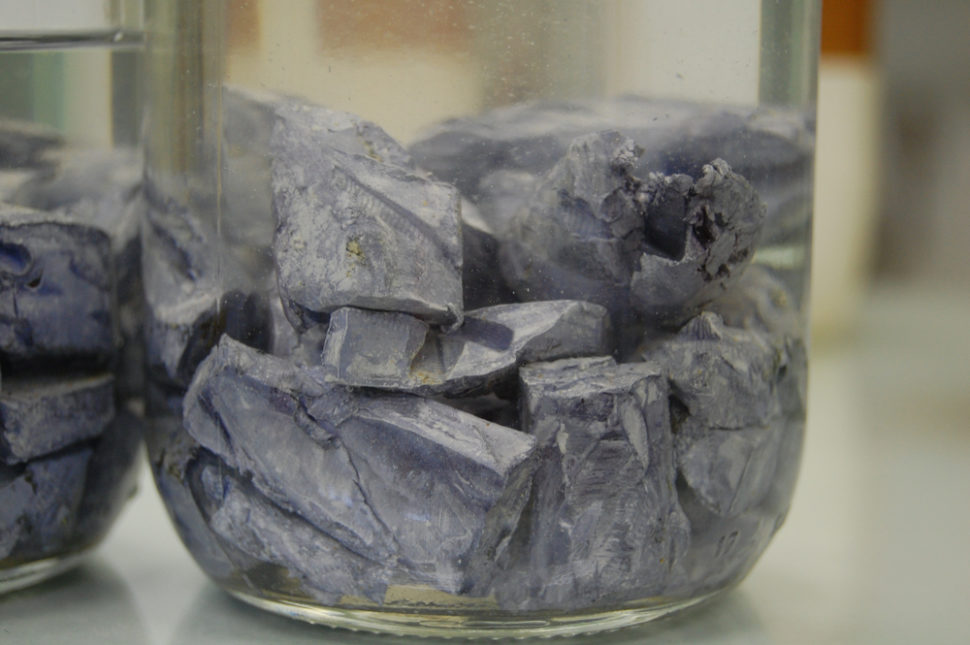Researchers from the University of Edinburg have confirmed the existence of a new state of matter that exhibits properties of both a solid and liquid at the same time. This latest discovery further proves that other rare varieties of matter can exist under extreme conditions and pressure.
According to Andreas Hermann, a condensed matter physicist from the University of Edinburg and co-author of the study:
“It would be like holding a sponge filled with water that starts dripping out, except the sponge is also made of water.”
According to the researchers, they used artificial intelligence to confirm that metal potassium atoms can be solid and liquid simultaneously. This bizarre state of potassium could exist under conditions in our planet’s mantle.
Potassium’s Solid and Liquid State of Matter
In its standard solid form, potassium is a simple element with its clean, basic crystal lattice structure. However, subjecting simple metals like potassium to extreme conditions can drastically alter their properties and forms.
For instance, lithium turns into a superconductor when exposed to high pressure and low temperatures. On the other hand, metal sodium turns into an insulator when exposed to high pressure. Potassium, for its part, shows unusual behavior in its atoms when exposed to high-pressure or when heat is applied.
To further understand the phenomenon, the researchers utilized powerful computer simulations to understand the behavior of around 20,000 potassium atoms under extreme conditions.
The team discovered that at high temperatures, the potassium atoms form strong connected chains and lattices, retaining its solid state. However, the chains turn into a liquid state at a temperature of about 400 to 800 Kelvin. The team called the new state of matter chain-melted phase.
Hermann said:
“Potassium is one of the simplest metals we know, yet if you squeeze it, it forms very complicated structures. We have shown that this unusual but stable state is part solid and part liquid. Recreating this unusual state in other materials could have all kinds of applications.”



















Comments (0)
Most Recent